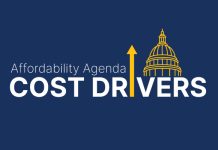 Earlier reports examined voters’ anxieties about the economy, the state’s business climate, and crime. Voters also have strong opinions about issues that affect their lifestyles and pocketbooks.
Earlier reports examined voters’ anxieties about the economy, the state’s business climate, and crime. Voters also have strong opinions about issues that affect their lifestyles and pocketbooks.
Along with the economy, top-of-mind for voters is the drought. By a 4 to 1 margin, voters say the drought represents the new reality for California, as opposed to a short-term problem. And 87% of voters say that state leaders are not spending enough time working to expand the state’s fresh water supply.
When it comes to solutions and strategies, voters overwhelmingly support new infrastructure and technology to address water shortages. By a large margin, voters support (89%, 52% strongly) expedited permitting of desalination plants along the coast and expedited permitting of off-stream water storage reservoirs (89%, 41% strongly). Similar support was expressed for expedited permitting of recycling plants that make sewage effluent (treated, reclaimed wastewater) and stormwater drinkable.
Conservation and regulatory measures also are supported by voters. Voluntary water reductions by residential users and mandatory reductions for all other users was supported by 83% of voters, while mandatory water rationing for all users was supported by 64% of voters. This latter, stringent measure was supported by all demographic subgroups and regions except Republicans (46%) and Inland Empire voters (47%).
Climate Change
A perennially popular issue with elected California leaders is climate change and regulations to mitigate its causes. A plurality of California voters (43%) agree that California is not moving fast enough when it comes to policies addressing climate change (another 30% believe the state is moving at the right pace). But when it comes to both setting priorities and the policy details, voters diverge from their leaders.
Voters strongly support measures to address wildfire suppression and mitigation. Controlled burning to eliminate dry underbrush on public and private land is supported by 85% of voters, as is limiting future housing development in areas prone to wildfires (84%).
Subsidies of electric or hydrogen-powered vehicles also are supported by a 2 to 1 margin.
Cost Concerns
But voters shift gears when a policy implicates their lifestyles or pocketbooks. They oppose (52%) the ban on sales of gasoline-powered automobile engines by 2035, strongly oppose (61%) requiring any new highway expansion include only carpool or toll lanes, and overwhelmingly oppose (70%) increasing taxes on gasoline or diesel to discourage use of internal combustion engines.
Californians understand that fighting climate change as a state will be costly. More than two-thirds of voters say that new policies to fight climate change will cause the price of things to increase, while only a quarter of voters believe these policies would have no impact on prices.
When asked directly how much more they’d be willing to spend in higher prices and higher taxes each month to combat climate change, Californians voted with their pocketbooks.
No more: 50%
Up to $50 more per month: 30%
Up to $100 more: 12%
Up to $200 more: 5%
Up to $400 more: 1%
Up to $500 more: 1%
More than $500 more: 0%
Methodology
The CalChamber poll was conducted by Bold Decision and Pierrepont Consulting and Analytics with 1,000 online interviews of California 2022 general election voters from November 12–14, 2022. The margin of error for this study is +/- 3.1% at the 95% confidence level and larger for subgroups. This is the eighth year CalChamber has published The People’s Voice survey.


